- Home
- Roger Zelazny
This Immortal Page 5
This Immortal Read online
Page 5
We struck the proper avenue and turned up it.
“Why are you suddenly concerned with the Radpol again?” he asked. “Its been a long time since you left.”
“I left at the proper time, and all I’m concerned with is whether it’s coming alive again—like in the old days. Hasan comes high because he always delivers, and I want to know what’s in the package.”
“Are you worried they’ve found you out?”
“No. It might be uncomfortable, but I doubt it would be incapacitating.”
The Royal loomed before us and we entered. We went directly to the suite. As we walked up the padded hallway, Phil, in a fit of perception, observed, “I’m running interference again.”
“That about says it.”
“Okay. One’ll get you ten you find out nothing.”
“I won’t take you up on that. You’re probably right.”
I knocked on the darkwood door.
“Hi there,” I said as it opened.
“Come in, come in.”
And we were off.
It took me ten minutes to turn the conversation to the lamentable bashing of the Bedouin, as Red Wig was there distracting me by being there and being distracting.
“Good morning,” she said.
“Good evening,” I said.
“Anything new happening in Arts?”
“No.”
“Monuments?”
“No.”
“Archives?”
“No.”
“What interesting work you must do!”
“Oh, it’s been overpublicized and glamorized all out of shape by a few romanticists in the Information Office. Actually, all we do is locate, restore, and preserve the records and artifacts mankind has left lying about the Earth.”
“Sort of like cultural garbage collectors?”
“Mm, yes. I think that’s properly put”
“Well, why?”
“Why what?”
“Why do you do it?”
“Someone has to, because its cultural garbage. That makes it worth collecting. I know my garbage better than anyone else on Earth.”
“You’re dedicated, as well as being modest. That’s good, too.”
“Also, there weren’t too many people to choose from when I applied for the Job—and I knew where a lot of the garbage was stashed.” She handed me a drink, took a sip and a half of her own, and asked, “Are they actually still around?”
“Who?” I inquired.
“Divinity Incorporated. The old gods. Like Angelsou. I thought all the gods had left the Earth.”
“No, they didn’t. Just because most of them resemble us doesn’t mean they act the same way. When man left he didn’t offer to take them along, and gods have some pride, too. But then, maybe they had to stay, anyhow—that thing called ananke, death-destiny. Nobody prevails against it.”
“Like progress?”
“Yeah. Speaking of progress, how is Hasan progressing? The last time I saw him he had stopped entirely.”
“Up, around. Big lump. Thick skull. No harm.”
“Where is he?”
“Up the hall, left. Games Room.”
“I believe I’ll go render him my sympathy. Excuse me?”
“Excused,” she said, nodding, and she went away to listen to Dos Santos talk at Phil. Phil, of course, welcomed the addition.
Neither looked up as I left.
The Games Room was at the other end of the long hallway. As I approached, I heard a thunk followed by a silence, followed by another thunk.
I opened the door and looked inside.
He was the only one there. His back was to me, but he heard the door open and turned quickly. He was wearing a long purple dressing gown and was balancing a knife in his right hand. There was a big wad of plastage on the back of his head.
“Good evening, Hasan.”
A tray of knives stood at his side, and he had set a target upon the opposite wall. Two blades were sticking into the target—one in the center and one about six inches off, at nine o’clock.
“Good evening,” he said slowly. Then, after thinking it over, he added, “How are you?”
“Oh, fine. I came to ask you that same question. How is your head?”
“The pain is great, but it shall pass.”
I closed the door behind me.
“You must have been having quite a daydream last night.”
“Yes. Mister Dos Santos tells me I fought with ghosts. I do not remember.”
“You weren’t smoking what the fat Doctor Emmet would call Cannabis sativa, that’s for sure.”
“No, Karagee. I smoked a strige-fleur which had drunk human blood. I found it near the Old Place of Constantinople and dried its blossoms carefully. An old woman told me it would give me sight into the future. She lied.”
“. . . And the vampire-blood incites to violence? Well, that’s a new one to write down. By the way, you just called me Karagee. I wish you wouldn’t. My name is Nomikos, Conrad Nomikos.”
“Yes, Karagee. I was surprised to see you. I had thought you died long ago, when your blazeboat broke up in the bay.”
“Karagee did die then. You have not mentioned to anyone that I resemble him, have you?”
“No; I do not make idle talk.”
“That’s a good habit.”
I crossed the room, selected a knife, weighed it, threw it, and laid it about ten inches to the right of center.
“Have you been working for Mister Dos Santos very long?” I asked him.
“For about the period of a month,” he replied.
He threw his knife. It struck five inches below the center.
“You are his bodyguard, eh?”
“That is right. I also guard the blue one.”
“Don says he fears an attempt on Myshtigo’s life. Is there an actual threat, or is he just being safe?”
“It is possible either way, Karagee. I do not know. He pays me only to guard.”
“If I paid you more, would you tell me whom you’ve been hired to kill?”
“I have only been hired to guard, but I would not tell you even if it were otherwise.”
“I didn’t think so. Let’s go get the knives.”
We crossed and drew the blades from the target.
“Now, if it happens to be me—which is possible,” I offered, “why don’t we settle it right now? We are each holding two blades. The man who leaves this room will say that the other attacked him and that it was a matter of self-defense. There are no witnesses. We were both seen drunk or disorderly last night.”
“No, Karagee.”
“No, what? No, it isn’t me? Or no, you don’t want to do it that way?”
“I could say no, it is not you. But you would not know whether I spoke the truth or not.”
“That is true.”
“I could say I do not want to do it that way.”
“Is that true?”
“I do not say. But to give you the satisfaction of an answer, what I will say is this: If I wished to kill you, I would not attempt it with a knife in my hand, nor would I box nor wrestle with you.”
“Why is that?”
“Because many years ago when I was a boy I worked at the Resort of Kerch, attending at the tables of the wealthy Vegans. You did not know me then. I had just come up from the places of Pamir. You and your friend the poet came to Kerch”
“I remember now. Yes . . . Phil’s parents had died that year—they were good friends of mine—and I was going to take Phil to the university. But there was a Vegan who had taken his first woman from him, taken her to Kerch. Yes, the entertainer—I forget his name.”
“He was Thrilpai Ligo, the shajadpa-boxer, and he looked like a mountain at the end of a great plain—high, immovable. He boxed with the Vegan cesti—the leather straps with the ten sharpened studs that go all the way around the hand—open-handed”
“Yes, I remember. . . .”
“You had never boxed shajadpa before, but yo
u fought with him for the girl. A great crowd came, of the Vegans and the Earth girls, and I stood on a table to watch. After a minute your head was all blood. He tried to make it run into your eyes, and you kept shaking your head. I was fifteen then and had only killed three men myself, and I thought that you were going to die because you had not even touched him. And then your right hand crossed to him like a thrown hammer, so fast! You struck him in the center of that double bone the blue ones have in their chests—and they are tougher there than we—and you crushed him like an egg. I could never have done that, I am sure—and that is why I fear your hands and your arms. Later, I learned that you had also broken a spiderbat. —No, Karagee, I would kill you from a distance.”
“That was so long ago. . . . I did not think anyone remembered.”
“You won the girl.”
“Yes. I forget her name.”
“But you did not give her back to’ the poet. You kept her for yourself. That is why he probably hates you.”
“Phil? That girl? I’ve even forgotten what she looked like”
“He has never forgotten. That is why I think he hates you. I can smell hate, sniff out its sources. You took away his first woman. I was there.”
“It was her idea.”
“. . . And he grows old and you stay young. It is sad, Karagee, when a friend has reason to hate, a friend.”
“Yes”
“And I do not answer your questions.”
“It is possible that you were hired to kill the Vegan”
“It is possible.”
“Why?”
“I said only that it is possible, not that it is fact.”
“Then I will ask you one more question only, and be done with it. What good would come of the Vegan’s death? His book could be a very good thing in the way of Vegan-human relations.”
“I do not know what good or bad would come of it, Karagee. Let us throw more knives.”
We did. I picked up the range and the balance and put two right in the center of the target. Then Hasan squeezed two in beside them, the last one giving out the sharp pain-cry of metal as it vibrated against one of mine.
“I will tell you a thing,” I said, as we drew them again. “I am head of the tour and responsible for the safety of its members. I, too, will guard the Vegan.”
“That will be a very good thing, Karagee. He needs protecting.”
I placed the knives back in the tray and moved to the door.
“We will be leaving at nine tomorrow morning, you know. I’ll have a convoy of Skimmers at the first field in the Office compound.”
“Yes. Good night, Karagee.”
“. . . And call me Conrad.”
“Yes”
He had a knife ready to throw at the target. I closed the door and moved back up the corridor. As I went, I heard another thunk, and it sounded much closer than the first ones had. It echoed all around me, there in the hallway.
As the six big Skimmers fled across the oceans toward Egypt I turned my thoughts first to Kos and Cassandra and then dragged them back with some difficulty and sent them on ahead to the land of sand, the Nile, mutated crocs, and some dead Pharaohs whom one of my most current projects was then disturbing. (“Death comes on swift wings to he who defiles . . .” etc.), and I thought then of humanity, roughly ensconced on the Titan way-station, working in the Earth-office, abasing itself on Taler and Bakab, getting by on Mars, and doing so-so on Rylpah, Divbah, Litan and a couple dozen other worlds in the Vegan Combine. Then I thought about the Vegans.
The blueskinned folk with the funny names and the dimples like pock-marks had taken us in when we were cold, fed us when we were hungry. Yeah. They appreciated the fact that our Martian and Titanian colonies had suffered from nearly a century of sudden self-sufficiency—after the Three Days incident—before a workable interstellar vehicle had been developed. Like the boll weevil (Emmet tells me) we were just looking for a home, because we’d used up the one we had. Did the Vegans reach for the insecticide? No. Wise elder race that they are, they permitted us to settle among their worlds, to live and work in their landcities, their seacities. For even a culture as advanced as the Vegans’ has some need for hand labor of the opposing thumb variety. Good domestic servants cannot be replaced by machines, nor can machine monitors, good gardeners, salt sea fisherfolk, subterranean and subaquean hazard workers, and ethnic entertainers of the alien variety. Admittedly, the presence of human dwelling places lowers the value of adjacent Vegan properties, but then, humans themselves compensate for it by contributing to the greater welfare.
Which thought brought me back to Earth. The Vegans had never seen a completely devastated civilization before, so they were fascinated by our home planet. Fascinated enough to tolerate our absentee government on Taler. Enough to buy Earthtour tickets to view the ruins. Even enough to buy property here and set up resorts. There is a certain kind of fascination to a planet that is run like a museum. (What was it James Joyce said about Rome?) Anyhow, dead Earth still brings its living grandchildren a small but appreciable revenue every Vegan fiscal year. That is why—the Office, Lorel, George, Phil, and all that.
Sort of why me, even.
Far below, the ocean was a bluegray rug being pulled out from beneath us. The dark continent replaced it. We raced on toward New Cairo.
We set down outside the city. There’s no real airstrip. We just dropped all six Skimmers down in an empty field we used as one, and we posted George as a guard.
Old Cairo is still hot, but the people with whom one can do business live mainly in New Cairo, so things were pretty much okay for the tour. Myshtigo did want to see the mosque of Kait Bey in the City of the Dead, which had survived the Three Days; he settled, though, for me taking him up in my Skimmer and flying in low, slow circles about it while he took photographs and did some peering. In the way of monuments, it was really the pyramids and Luxor, Kamak, and the Valley of Kings and the Valley of Queens that he wanted to see.
It was well that we viewed the mosque from the air. Dark shapes scurried below us, stopping only to hurl rocks up toward the ship.
“What are they?” asked Myshtigo.
“Hot Ones,” said I. “Sort of human. They vary in size, shape, and meanness.”
After circling for a time he was satisfied, and we returned to the field.
So, landing again beneath a glaring sun, we secured the final Skimmer and disembarked, moving across equal proportions of sand and broken pavement-two temporary tour assistants, me, Myshtigo, Dos Santos and Red Wig, Ellen, Hasan. Ellen had decided at the last minute to accompany her husband on the journey. There were fields of high, shiny sugar cane on both sides of the road. In a moment we had left them behind and were passing the low outbuildings of the city. The road widened. Here and there a palm tree cast some shade. Two great-eyed, brown-eyed children looked up as we passed. They had been watching a weary, six-legged cow turn a great sakieh wheel, in much the same way as cows have always turned great sakieh wheels hereabouts, only this one left more hoofprints.
My area supervisor, Rameses Smith, met us at the inn. He was big, his golden face tightly contained within a fine net of wrinkles; and he had the typical sad eyes, but his constant chuckle quickly offset them.
We sat sipping beer in the main hall of the inn while we waited for George. Local guards had been sent to relieve him.
“The work is progressing well,” Rameses told me.
“Good,” I said, somewhat pleased that no one had asked me what “the work” was. I wanted to surprise them.
“How is your wife, and the children?”
“They are fine,” he stated.
“The new one?”
“He has survived—and without defect,” he said proudly. “I sent my wife to Corsica until he was delivered. Here is his picture.”
I pretended to study it, making the expected appreciative noises. Then, “Speaking of pictures,” I said, “do you need any more equipment for the filming?”
“No, w
e are well-stocked. All goes well. When do you wish to view the work?”
“Just as soon as we have something to eat.”
“Are you a Moslem?” interrupted Myshtigo.
“I am of the Coptic faith,” replied Rameses, not smiling.
“Oh, really? That was the Monophysite heresy, was it not?”
“We do not consider ourselves heretics,” said Rameses.
I sat there wondering if we Greeks had done the right thing in unleashing logic onto a hapless world, as Myshtigo launched into an amusing (to him) catalog of Christian heresies. In a fit of spite at having to guide a tour, I recorded them all in the Tour Log. Later, Lorel told me that it was a fine and well-kept document. Which just goes to show how nasty I must have felt at that moment. I even put in the bit about the accidental canonization of Buddha as St. Josaphat in the sixteenth century. Finally, as Myshtigo sat there mocking us, I realized I would either have to cut him down or change the subject. Not being a Christian myself, his theological comedy of errors did not poke me in the religious plexus. It bothered me, though, that a member of another race had gone to such trouble doing research to make us look like a pack of idiots.
Reconsidering the thing at this time, I know now that I was wrong. The success of the viewtape I was making then (“the work” which Rameses had referred to) bears out a more recent hypothesis of mine concerning the Vegans: They were so bloody bored with themselves and we were so novel that they seized upon our perennially popular problems and our classical problems, as well as the one we were currently presenting in the flesh. They engaged in massive speculation as to who really wrote Shakespeare’s plays, whether or not Napoleon actually died on St. Helena, who were the first Europeans to set foot on North America, and if the books of Charles Fort indicated that Earth had been visited by an intelligent race unknown to them—and so on. High caste Vegan society just eats up our medieval theological debates, too. Funny.
“About your book, Srin Shtigo . . .” I interrupted.
My use of the honorific stopped him.
“Yes?” he answered.
“My impression,” said I, “is that you do not wish to discuss it at any length at this time. I respect this feeling, of course, but it places me in a slightly awkward position as head of this tour.” We both knew I should have asked him in private, especially after his reply to Phil at the reception, but I was feeling cantankerous and wanted to let him know it, as well as to rechannel the talk. So, “I’m curious,” I said, “whether it will be primarily a travelogue of the places we visit, or if you would like assistance in directing your attention to special local conditions of any sort—say, political, or current cultural items.”

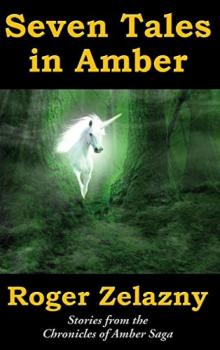 Seven Tales in Amber
Seven Tales in Amber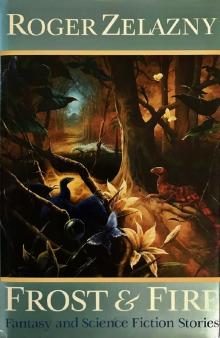 Frost and Fire
Frost and Fire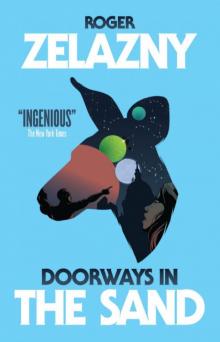 Doorways in the Sand
Doorways in the Sand Unicorn Variation
Unicorn Variation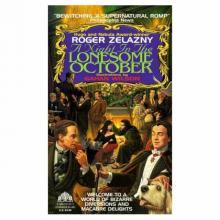 A Night in the Lonesome October
A Night in the Lonesome October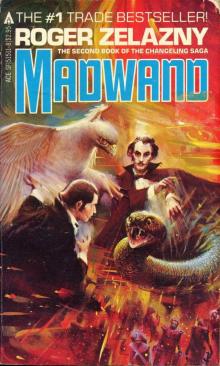 Madwand
Madwand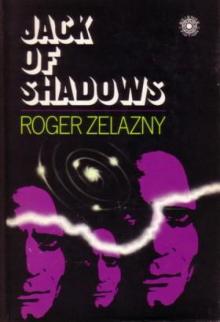 Jack Of Shadows
Jack Of Shadows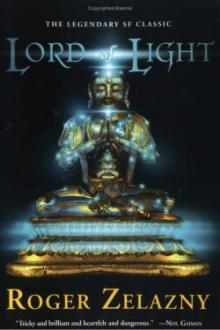 Lord of Light
Lord of Light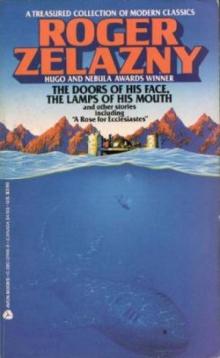 The Doors of His Face, The Lamps of His Mouth and Other Stories
The Doors of His Face, The Lamps of His Mouth and Other Stories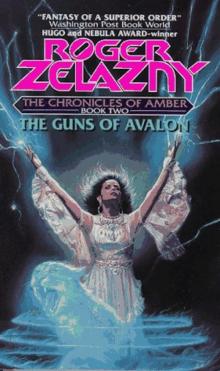 Guns Of Avalon tcoa-2
Guns Of Avalon tcoa-2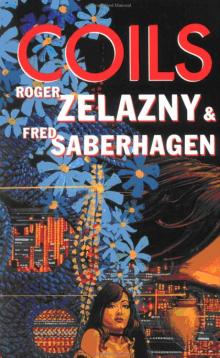 Coils
Coils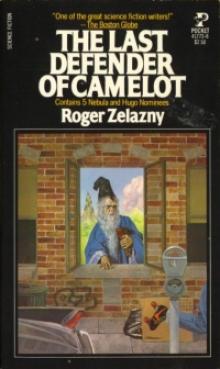 The Last Defender Of Camelot
The Last Defender Of Camelot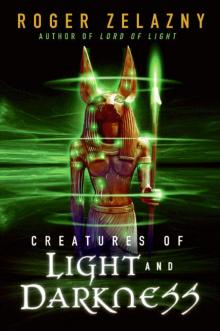 Creatures of Light and Darkness
Creatures of Light and Darkness This Immortal
This Immortal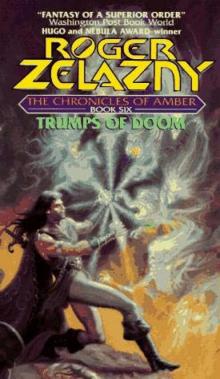 Trumps of doom tcoa-6
Trumps of doom tcoa-6 The Dream Master
The Dream Master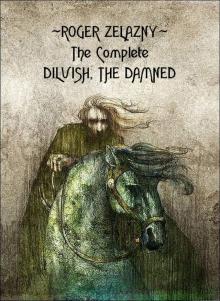 The Complete Dilvish, The Damned
The Complete Dilvish, The Damned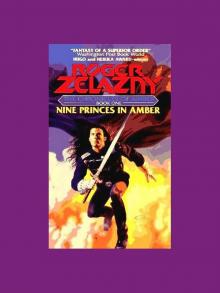 Nine Princes in Amber
Nine Princes in Amber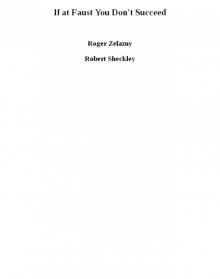 If at Faust You Don't Succeed
If at Faust You Don't Succeed Here there be dragons
Here there be dragons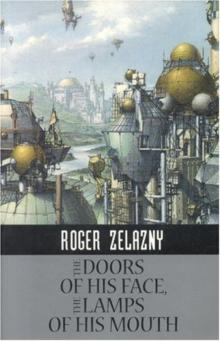 The Doors Of His Face, The Lamps Of His Mouth
The Doors Of His Face, The Lamps Of His Mouth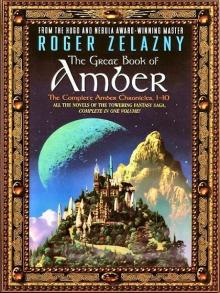 The Great Book of Amber - Chronicles 1-10
The Great Book of Amber - Chronicles 1-10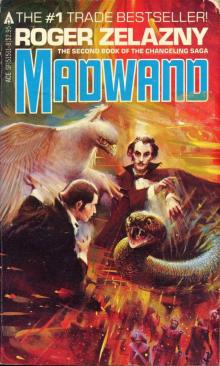 Madwand (Illustrated)
Madwand (Illustrated)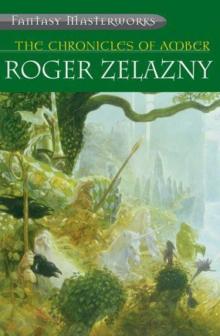 The Chronicles of Amber
The Chronicles of Amber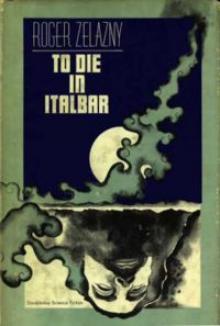 To Die In Italbar
To Die In Italbar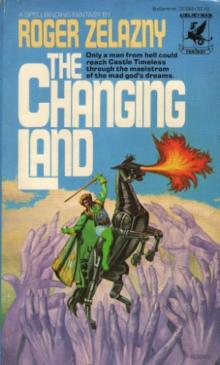 The Changing Land
The Changing Land The Furies
The Furies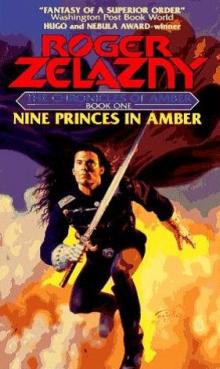 Nine Princes In Amber tcoa-1
Nine Princes In Amber tcoa-1 Last Of The Wild Ones
Last Of The Wild Ones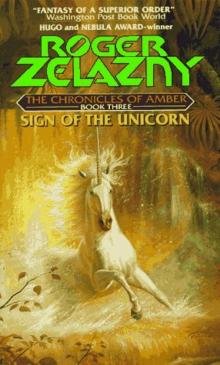 Sign of the Unicorn tcoa-3
Sign of the Unicorn tcoa-3 My Name is Legion
My Name is Legion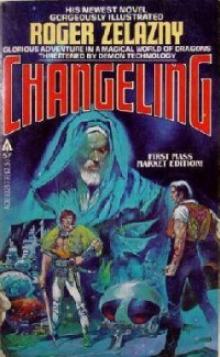 Wizard World 1: Changeling
Wizard World 1: Changeling Changeling
Changeling The Shroudling and the Guisel (amber stories)
The Shroudling and the Guisel (amber stories)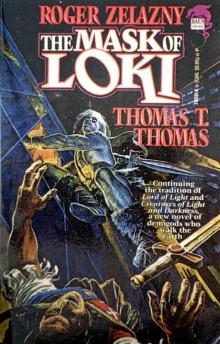 The Mask of Loki
The Mask of Loki A Farce To Be Reckoned With
A Farce To Be Reckoned With Roadmarks
Roadmarks When Pussywillows Last in the Catyard Bloomed (rtf)
When Pussywillows Last in the Catyard Bloomed (rtf) Hall of Mirrors (amber stories)
Hall of Mirrors (amber stories) Permafrost
Permafrost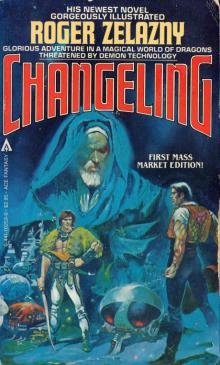 Changeling (Illustrated)
Changeling (Illustrated)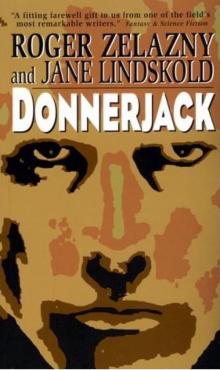 Donnerjack
Donnerjack Shadows & Reflections: A Roger Zelazny Tribute Anthology
Shadows & Reflections: A Roger Zelazny Tribute Anthology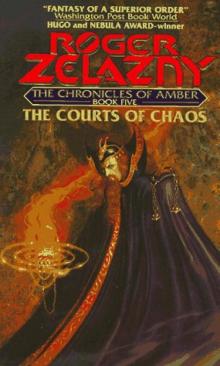 The Courts Of Chaos tcoa-5
The Courts Of Chaos tcoa-5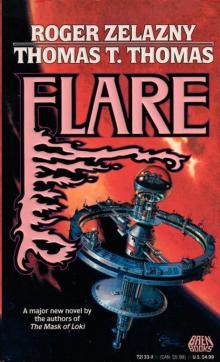 Flare
Flare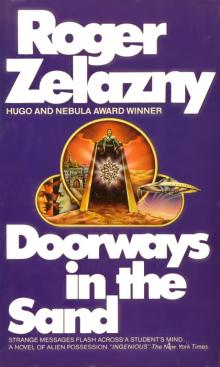 Doorsways in the Sand
Doorsways in the Sand The Great Book of Amber
The Great Book of Amber Home Is the Hangman
Home Is the Hangman For a Breath I Tarry
For a Breath I Tarry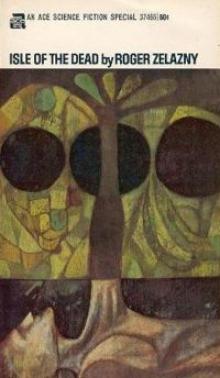 Isle Of The Dead
Isle Of The Dead Salesman Tale (amber stories)
Salesman Tale (amber stories) Dismal Light
Dismal Light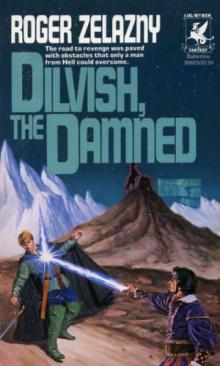 Dilvish, The Damned
Dilvish, The Damned The Black Throne
The Black Throne Wizard World 2: Madwand
Wizard World 2: Madwand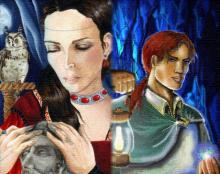 The Salesman's Tale
The Salesman's Tale